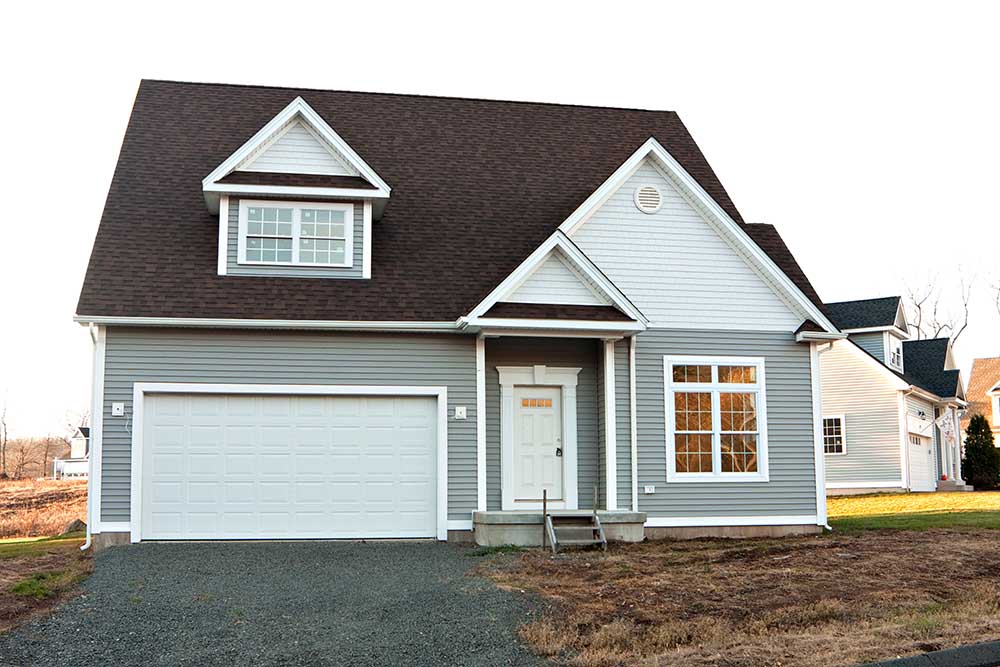Can water come up through concrete basement floor?

Few things strike fear into Berkley homeowners like finding water on the basement floor for the first time. It is a legitimate concern as it can indicate bigger problems and should be taken seriously. Why and how water is coming up through the basement floor can vary, so some investigation is needed before panicking.
Before you enter your basement, evaluate the danger. Any plugs, outlets, or appliances in or near water can conduct electricity, so it’s critical to turn off the power supply and then get a flashlight to do some investigation.
Next, confirm that the water is coming up from the basement floor and not dripping down from any pipes above. Once you’re sure it’s not flooding from pipework, you can determine the cause of the leak.
Common Causes of Flooding
There are a few questions to consider first:
- Does your area have know groundwater issues with basements and foundations?
- Have you had heavy rain or fast-melting snow lately?
- Is there a burst city pipe or construction by your property?
- Have you had wind or other weather issues that could have moved where downspouts are dumping rainwater?
- Have any pipes under the concrete burst?
Groundwater and the Water Table
If water is not from pipes and plumbing, the leading cause of basement groundwater is the water table rising. The water table is where water saturation begins in soil, but it is not static, and it rises and falls depending on weather and seasons. For example, the water table near a lake is much higher and closer to the ground surface than in a plateau or desert area, and it rises quickly in poor weather, like flooding or seasonal snow melting.
With floods and snow melt the water saturation continues to increase, and water level in the soil keeps rising until it eventually meets the ground surface. If your basement is in the way, and there are any structural deficiencies or cracks in the concrete, then your basement becomes the path of least resistance, and the groundwater goes there.
Rising groundwater causes hydrostatic pressure, which causes soil to push on your basement walls and floor. This can cause cracks to form in basement concrete, particularly in wet seasons, and is usually why there’s water in your basement after rain.
Water Entry Points
If groundwater and flooding are causing your basement water problems, it can be hard to identify where the water is entering the basement. Hydrostatic pressure makes water look for the easiest way into your basement. So, what’s failing and where? Things like mold, efflorescence, mildew and stains can indicate where a water problem has been coming from over a longer period, but they won’t be there if this is a new problem for you.
Here are several points of entry that could be the source of your water issues:
- Window wells: These are intended to help more light come into the basement while keeping dirt and water away from the window. Unfortunately, they can become blocked or filled with debris over time, and if they are not draining well, water will make its way through flaws in the construction.
- Wall cracks: This can be serious. A crack in the wall can be a structural problem with the foundation, and everything in your home depends on foundation’s integrity. If water gets into the crack and the temperature drops, the water can freeze and further increase the crack. Hydraulic cement can be a very good patching solution, it is best to consult with a professional to guarantee that the foundation integrity has not been compromised.
- Honeycomb concrete: Poorly mixed concrete that was poured for your foundation can cause air pockets to form that can eventually give way under hydrostatic pressure. This gives water entry points of all sizes in random spots.
- Mortar joints: These are often found in older homes, mortar can eventually crumble or deteriorate, losing water resistance. This is a problem that can be repaired, but it can indicate multiple leaks, and each is quite hard to diagnose, as the cracks can be small and tricky to locate.
Dealing With Water in the Basement
Basement leak repair can be expensive. If you have cracks in your basement floor, and it’s because of hydrostatic pressure, the good news is that it can be mitigated, but it will be costly. Installing drain tile is the best solution. Concrete is cut to install a network of piping that guides the water build-up away from possible entry points into your basement. It relieves the pressure and saves your slab.
Waterproofing your walls and concrete floor is another good option. While there are products you can apply yourself, it is very labor intensive. You will need topatch all cracks first and then wire-scrub and clean all surfaces so the proofing sticks properly. Waterproofing is not as effective unless the exterior is also done, which must be completed by a waterproofing professional.
Outside Solutions to Leaky Basements
If the problem isn’t coming up from the underground water table, it is coming down to the basement, and a big cause of that is weeping and perimeter water damage. The primary cause can be clogged gutters. Debris blocking proper drainage down gutters means the water is overflowing and seeping down along your home’s perimeter and saturating the soil by your basement walls.
After that, consider the grading. Is your property’s pitch leading away from the house or leading to it? Some simple landscaping lets you alter the path water takes, easily guiding it away from your home.
Maintain Your Plumbing
Sewer and water lines are big offenders in water damage of any kind in homes because they can clog and back up, creating water or waste leaks. Worse still, they can crack and break under pressure, creating a very expensive repair. Be proactive in your efforts to avoid this and have a professional flush your lines every 18 to 24 months. Warning signs are when water starts to drain slowly, or you hear gurgling in the pipes.
Never flush wipes even if they claim to be flushable. Never pour fats, oils, starches or coffee grinds down drains. Nothing larger than a pea should go down the kitchen sink.
While it might be inconvenient to not pour things down the drain, repairing plumbing can be one of the most expensive problems homeowners deal with, depending on how pervasive it is. Practicing good habits with what goes down may help prevent what comes out or up.
